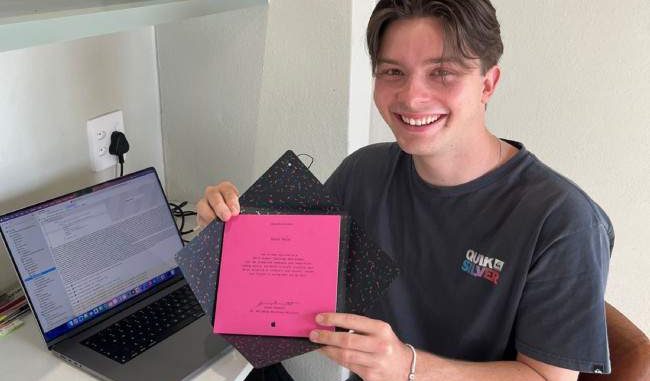
A 21-year-old University of Pretoria student, Jason Mayo, is gaining recognition for creating an innovative iPhone app designed to help students manage phone addiction by turning moments of distraction into opportunities for studying.
His app, called Study Guard, has been selected as a winner in Apple’s 2025 Swift Student Challenge, a global program that highlights young developers tackling real-world problems through technology. Mayo’s idea came from his own struggles with constant notifications and the lure of social media. Instead of blocking phones outright, Study Guard requires users to answer study flashcards before they can continue scrolling.
The app can generate flashcards automatically from a student’s notes, track progress with analytics, and even block memes and social feeds until learning goals are met. By reframing distraction as a study trigger, the tool takes a fresh approach to an issue that has become increasingly urgent in South Africa.
Recent studies by Stellenbosch University show that teenagers in the country spend an average of more than three hours per day on their phones, with some clocking in well beyond five hours. The South African Society of Psychiatrists has warned that adolescents who spend over five hours daily on digital devices are up to 70% more likely to struggle with suicidal thoughts compared to peers who spend under an hour online.
Heavy use has also been linked to rising levels of anxiety, depression, poor sleep, and declining academic performance. In this context, Mayo’s creation resonates because it does not demand that young people abandon their phones, which have become integral to social and academic life, but instead offers a constructive compromise that aligns their digital habits with their educational goals.
Mayo’s recognition places him among 350 students worldwide chosen in Apple’s Swift Student Challenge, with his app standing out for its originality and relevance. Local outlets have highlighted his journey, noting how the app, originally called Regret Guard, directly tackles the cycle of opening social apps compulsively and then regretting lost study time. Study Guard is already available on the Apple App Store and is free to download, with optional in-app purchases. While it is not a replacement for professional help where mental health is concerned, it represents a proactive step in digital wellbeing, showing how technology itself can be part of the solution rather than the problem.
In a country where phone dependency and youth mental health are increasingly intertwined, Mayo’s app has arrived at the right moment. It demonstrates how innovation can be personal, practical, and impactful all at once, offering students a chance to turn wasted minutes into meaningful learning. His success is not just a personal milestone but also a reminder that solutions to modern challenges can come from those who experience them firsthand.

Leave a Reply